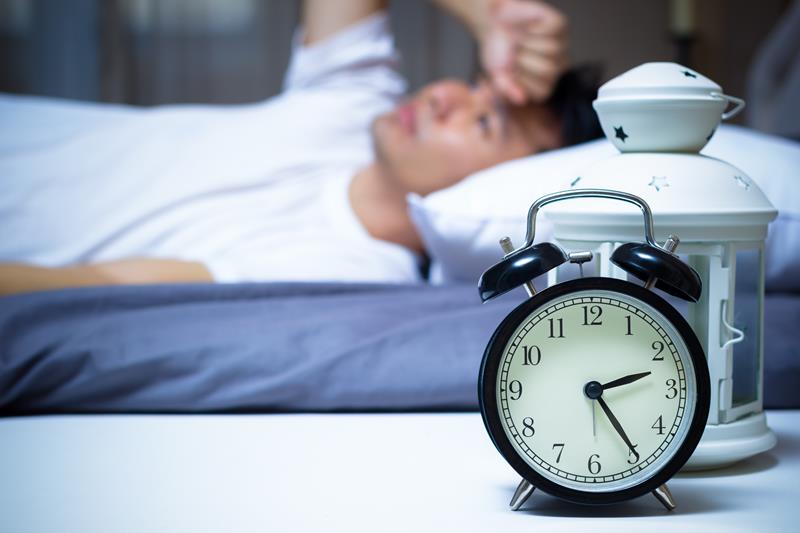
Insomnia can be more than just an inconvenience; it can eventually cause major issues with daily life. Dr. Matthew Goldenberg, a board-certified psychiatrist in Los Angeles, CA, has effective insomnia solutions for his patients. Dr. Goldenberg is also licensed to provide patients online psychiatry throughout California and Alaska.
request an appointmentWhat is Insomnia?
Insomnia is a common sleep disorder that affects millions of people worldwide, making it difficult to fall asleep, stay asleep, or wake feeling rested. Chronic insomnia can impact your physical health, mental well-being, and overall quality of life.
Dr. Matthew Goldenberg D.O., a trusted psychiatrist in Santa Monica, CA, specializes in diagnosing and treating insomnia. Using evidence-based strategies, he helps patients achieve restorative sleep and reclaim their energy and vitality.
How Matthew Goldenberg D.O. Treats Insomnia
At the office of Matthew Goldenberg D.O., we provide comprehensive and personalized care for insomnia. Here’s how we can help:
1. In-Depth Assessments
Insomnia can have various causes, including stress, anxiety, lifestyle habits, or underlying health conditions. Dr. Goldenberg conducts detailed evaluations to uncover the root cause of your sleep difficulties and craft a targeted treatment plan.
2. Customized Treatment Plans
Every individual’s experience with insomnia is unique, and treatment should reflect that. Your plan may include:
- Cognitive Behavioral Therapy for Insomnia (CBT-I): A gold-standard therapy that addresses negative thoughts and behaviors disrupting sleep.
- Medication Management: Short-term or long-term use of sleep aids tailored to your needs, with careful monitoring to ensure safety and effectiveness.
- Lifestyle Interventions: Practical advice on sleep hygiene, relaxation techniques, and stress management to promote better sleep.
3. Ongoing Support and Follow-Ups
Achieving restful sleep is a journey, and Dr. Goldenberg is here to support you every step of the way. Regular follow-ups allow us to fine-tune your treatment plan and address any concerns.
Why Choose Dr. Matthew Goldenberg, D.O. for Insomnia Treatment?
When sleep feels out of reach, finding the right specialist can make all the difference. At Matthew Goldenberg D.O., we combine advanced knowledge with compassionate care to help you restore healthy sleep patterns. Patients choose us because we offer:
- Specialized Expertise: A board-certified psychiatrist with extensive experience in sleep disorders, Dr. Goldenberg uses evidence-based methods to tackle even the most challenging cases of insomnia.
- Empathetic Care: Patients consistently praise Dr. Goldenberg for his understanding, patience, and dedication to improving quality of life.
- Comprehensive Solutions: From therapy to medication and lifestyle adjustments, our holistic approach addresses all aspects of insomnia for long-term relief.
- Proven Results: Many patients share success stories on our testimonials page, demonstrating the impact of effective insomnia treatment at Matthew Goldenberg D.O..
Types of Insomnia Treated
Matthew Goldenberg D.O. provides expert care for all forms of insomnia, including:
- Chronic Insomnia: Persistent sleep difficulties lasting more than three months.
- Acute Insomnia: Short-term sleep disruptions due to stress, travel, or life events.
- Sleep-Onset Insomnia: Difficulty falling asleep at the beginning of the night.
- Sleep-Maintenance Insomnia: Frequent nighttime awakenings or early-morning awakenings.
- Comorbid Sleep Issues: Insomnia linked with anxiety, depression, or other medical conditions. Dr. Goldenberg specializes in managing complex cases.
If you’re unsure which type of insomnia you may have, contact us for a thorough evaluation.
Common Questions About Insomnia Treatment
What are the symptoms of insomnia?
Common signs include:
- Difficulty falling asleep or staying asleep
- Feeling unrefreshed after sleep
- Daytime fatigue or irritability
- Difficulty concentrating or memory problems
- Worry or anxiety about sleep
How is insomnia treated?
Treatment at Matthew Goldenberg D.O. often includes a combination of cognitive-behavioral therapy for insomnia (CBT-I), medication when appropriate, and lifestyle modifications. Every plan is customized to your needs.
Can insomnia be cured?
Many patients experience significant improvement or complete resolution of symptoms with the right approach, especially when treatment addresses both habits and underlying conditions.
What is cognitive-behavioral therapy for insomnia (CBT-I)?
CBT-I is a structured, evidence-based therapy that helps patients change behaviors and thought patterns that interfere with sleep. Matthew Goldenberg D.O. often uses CBT-I as a first-line treatment for long-term results.
Are lifestyle changes important for improving sleep?
Absolutely. Regular sleep schedules, limiting caffeine or alcohol, reducing screen time before bed, and creating a relaxing bedtime routine can significantly improve sleep quality. At Matthew Goldenberg D.O., patients are guided in making effective lifestyle adjustments as part of their treatment plan.
Schedule Your Insomnia Consultation
Don’t let sleepless nights hold you back. Take the first step toward restorative sleep with expert, compassionate care at Matthew Goldenberg D.O.. You can book a free phone consultation with Dr. Matthew Goldenberg, D.O. today.
During your consultation, you’ll have the opportunity to:
- Discuss your sleep challenges and concerns
- Ask questions about treatment options
- Learn about a personalized plan to improve sleep and overall well-being
Prefer to connect directly with our office? Contact us here.
Articles:
- Huffington Post: “5 Things Easy Steps to Sleep Better Tonight“
- Huffington Post: “7 (not so) Obvious Things to Avoid if You Have Trouble Sleeping“
- Sleep Hygiene: Suggestions for a Better Night Sleep
- Medscape: “Getting to the Source of Your Patients’ Insomnia“
Sleep Logs:
- National Sleep Foundation: 5-night log. Includes details to help uncover the factors that may be contributing to your sleeping difficulties. It includes separate logs for the morning and before bed and can be used to monitor your improvements or deficits in sleep hygiene. https://sleepfoundation.org/sleep-diary/SleepDiaryv6.pdf
- American Academy of Sleep Medicine: 2-week log. It is more simplistic and specifically provides a more objective measure of the time you are awake and asleep. http://yoursleep.aasmnet.org/pdf/sleepdiary.pdf